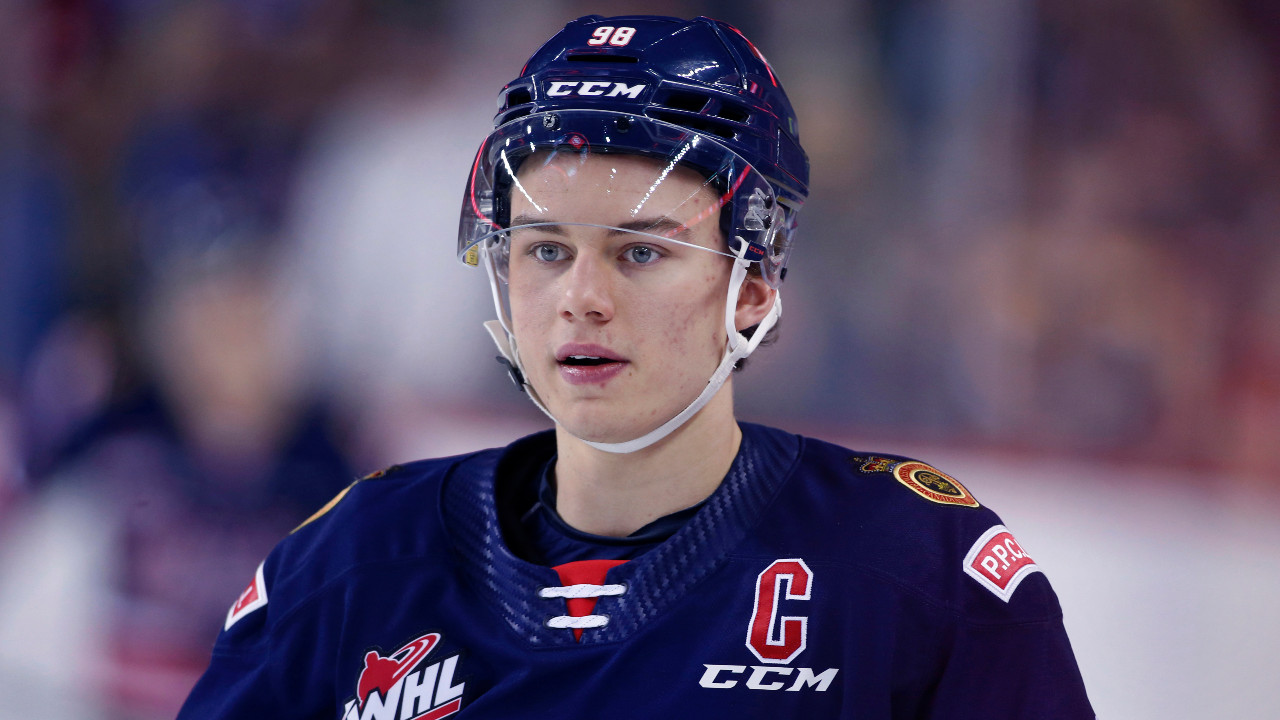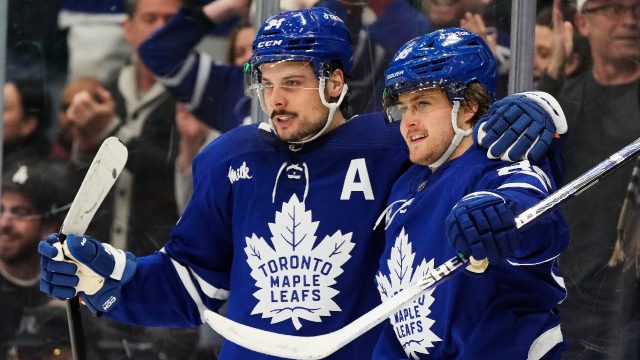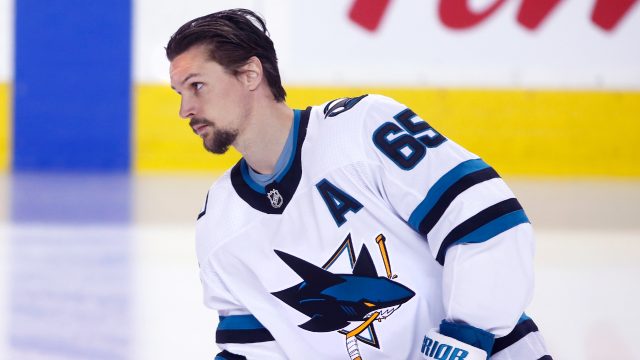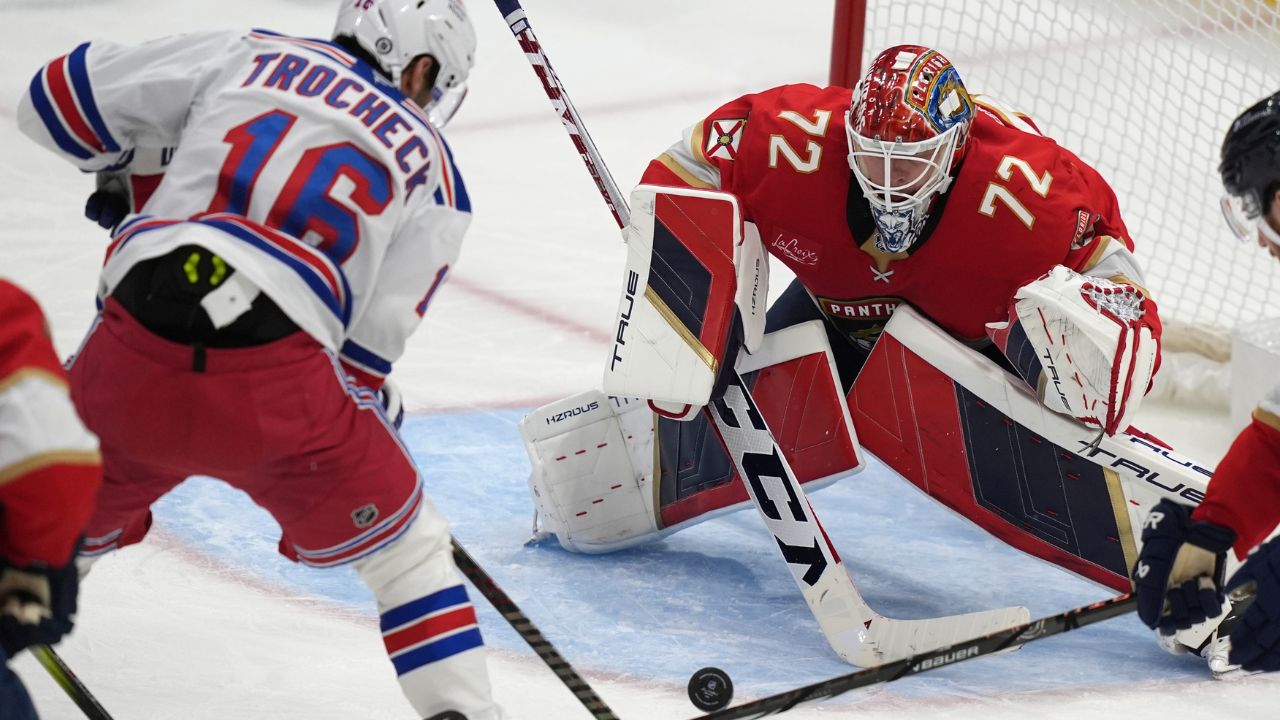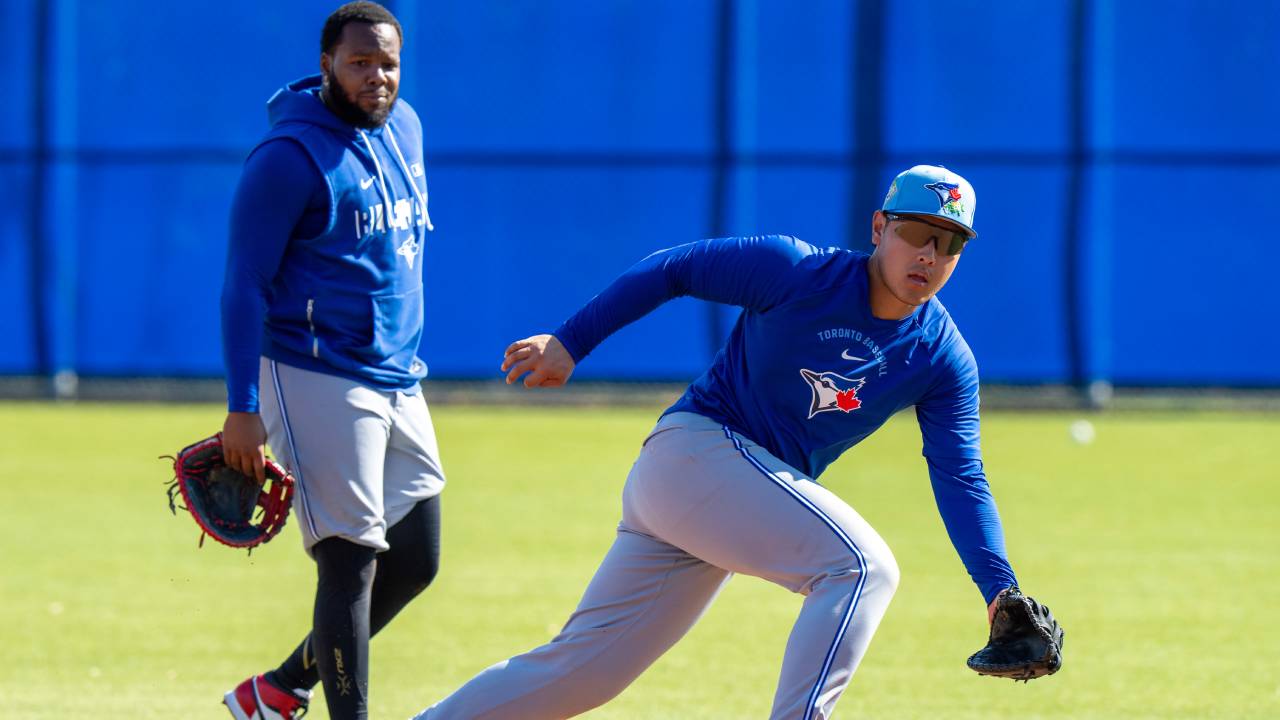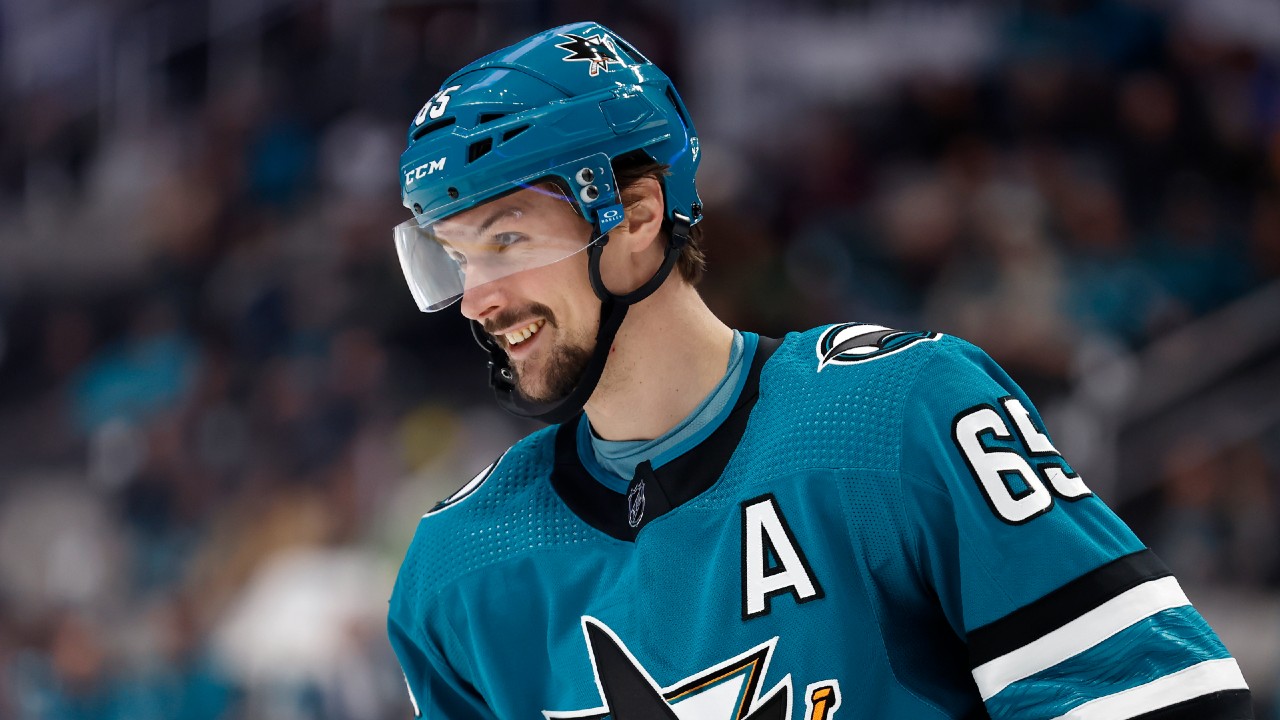
NASHVILLE — Could Brad Treliving be at the centre of the year’s biggest trade for the second summer in a row?
Erik Karlsson, fresh off a 101-point season and his third Norris Trophy win, is on the market, and the Toronto Maple Leafs reportedly have interest.
As they should.
Game-breakers of Karlsson’s calibre rarely become available, and the last two teams to boldly trade for the best available talent (Vegas nabbing Jack Eichel, Florida bringing in Matthew Tkachuk) just met in the Stanley Cup Final.
We know the Leafs’ interest in Karlsson stretches back to the trade deadline, when former GM Kyle Dubas kicked the idea around. We know that head coach Sheldon Keefe has been eager to see more offence generated from his back end. And we know that Treliving has designs on reshaping the current defence corps beyond simply letting Justin Holl walk in free agency.
So, Tuesday’s report by The Athletic’s Pierre LeBrun, that the Leafs, along with the Seattle Kraken and Carolina Hurricanes, are among the teams interested in finding a way to make a Karlsson trade work makes sense.
And should make Leafs fans a little excited.
There is a willingness on the part of Karlsson, his agent Craig Oster, and San Jose Sharks GM Mike Grier to move the final four years of his $11.5-million contract to a Cup contender.
“His timeline where he is in his career doesn’t quite match up with where we are in our process of building this thing back up,” Grier told reporters Tuesday afternoon on a Zoom call.
“We’ve talked to a bunch of teams. And there’s some serious interest, and there’s some people kind of dipping their toe in the water to see what something might look like.”
The catch here — particularly for 2023-24, with the cap only rising by $1 million and contenders pressed to the ceiling — is making the money work.
A Karlsson deal would’ve been done by now if Grier was willing to eat half of his salary, the way Nashville did in the Ryan Johansen trade.
And forget the notion of essentially giving Karlsson away for minimal return, the way Philadelphia did with Kevin Hayes and Boston did with Taylor Hall this week.
Grier will absorb some percentage of the contract but is targeting a legitimate return. As he should. Karlsson is a healthy, motivated superstar, who vows that his best hockey is still ahead.
“He’s not someone I’m just looking to give away,” Grier said. “For sure, in this kind of flat-cap world we’re still in, it’s definitely tough to move out salary. And we understand that. At some point, there’ll probably have to be a little give on our side.
“But for people to think we’re going to eat 50 per cent of his contract and all this type of stuff, it’s probably not going to happen. No offence to Hayes and Hallsy, who are both very good players and have had a lot of success in this league, but Erik’s a special player who is on the path of being a Hall of Fame player.
“He proved he was healthy last year. He’s a special player who drives offence like not many others in this league. He’s not someone that we’re just going to toss aside and not take things into account in trying to help the organization out.”
Because of Karlsson’s cumbersome contract, Treliving must first get clarity on the numbers Auston Matthews and William Nylander (UFAs in 2024) can get settled at.
By nature, Treliving is a tire-kicker. It’s the job. So, yes, he’s been poking around the trade market for a D-man, be it Karlsson, Travis Sanheim, or the three enticing options in Calgary, Noah Hanifin, Chris Tanev, and Nikita Zadorov.
Treliving has been talking plenty with friend Craig Conroy about the rookie GM’s reset with the Flames.
“He knows what I think of those players. We’ve had those discussions a lot,” Treliving said Tuesday. And the trade route should be more enticing with the free-agent market low on elite talent.
“I would just classify the [UFA] market as there’s some good players. And there’s quantity,” Treliving said.
Karlsson is quality.
While the Maple Leafs have a reputation as a high-offence machine, little of it stems from the blue line.
Timothy Liljegren, a third-pair defenceman and occasional healthy scratch in the playoffs, led Toronto’s blue line with six goals last season. Karlsson exploded for 25.
Karlsson’s 101 points eclipsed the Leafs’ top three most productive D-men combined (Morgan Rielly, 41 points; Mark Giordano, 24; Rasmus Sandin, 20).
If the Leafs don’t jump at this opportunity, another team should.
(Our two cents: As much as Carolina needs scoring, we don’t like the idea of a Karlsson–Brent Burns reunion. Too much of the same thing. Karlsson would be fantastic in Seattle, but more people like reading about the Leafs.)
Rip a page from the Golden Knights playbook and find a way to add the best talent.
A thought: If Nylander won’t accept a contract that begins with an eight, getting a salary-retained Karlsson at an eight would be a heck of an alternative.
The math won’t be easy, but opportunities like this don’t come around often.
“I think there’s a lot of teams that want to do it. Not necessarily a lot of teams that can do it,” Karlsson said Sunday. “I’m the best when you need to be the best. But if I don’t have the chance to get to the place where you need to play the big games, then I might as well not do it. I could go through 82 games a year and be good, but I want to play when matters.
“Whenever it comes down to it, I’m gonna look at all the teams and be like: ‘I think this is the winning team.’ That’s not to say we’re going to win, but I think this is where I can have the most impact.”


